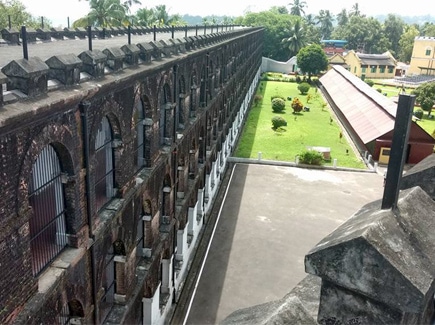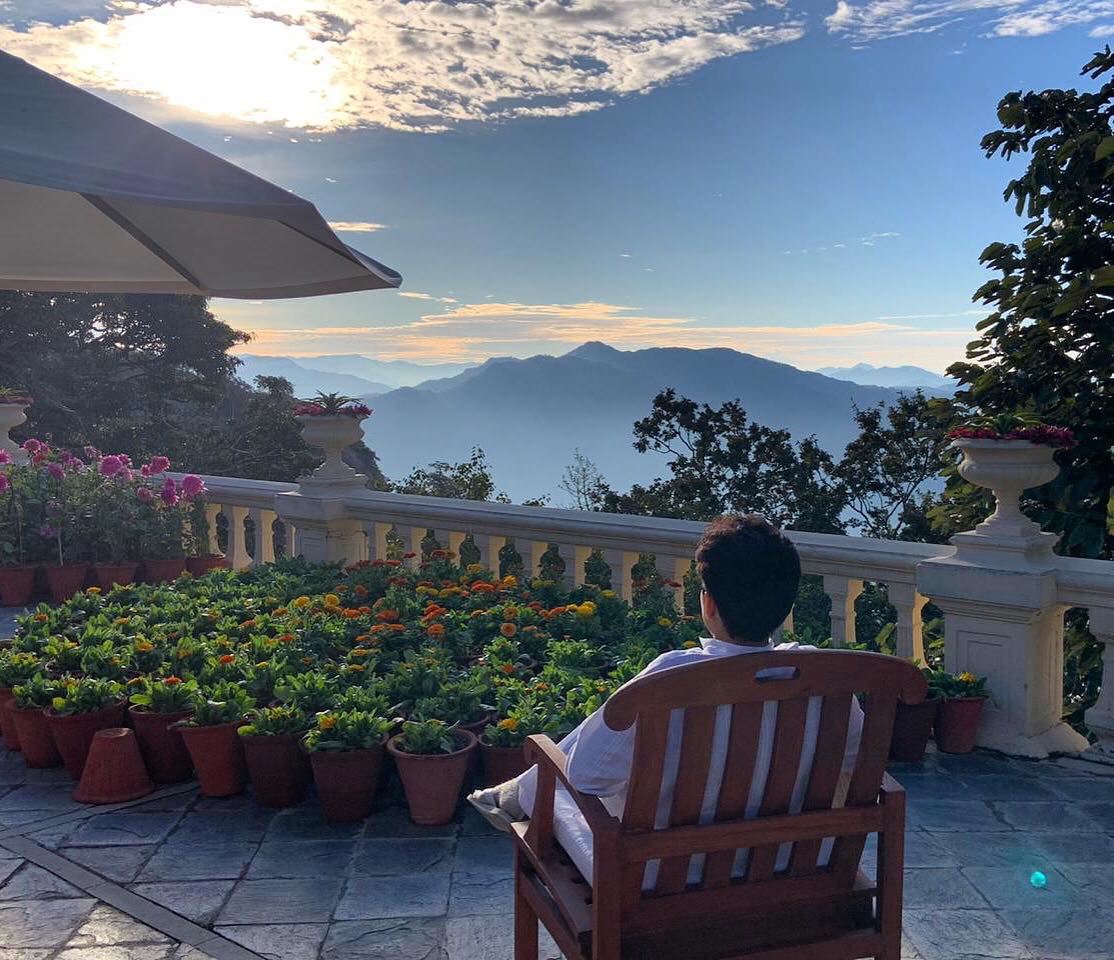Feeling suffocated is awful. Whenever you start to feel stifled, put up your own SOS sign and find a way out immediately.
This is the time when everyone is off on vacations—summer holidays. But for us, summer vacations mean being "on our toes" all the time. We operate as if we’re in an ICU—there’s no time to breathe. No one in our team is allowed to take leave in April, May, or June. Tours are running across various destinations, and even if we’re not directly involved in day-to-day operations, we keep a close watch on everything. We’re always at the office to support our team. Flights get cancelled, roads get blocked, medical emergencies arise, or major sightseeing attractions close unexpectedly. This super-busy peak season keeps us on our toes until mid-June. Once the crowds at tourist destinations start thinning, we too get a chance to breathe.
In February last year, we had gone to Jaipur for a wedding. Royal palaces and havelis in Rajasthan have become the perfect venues for grand weddings. This one was also held in a haveli. Since our USA tour was also scheduled around the same time, we could attend only for one night. The wedding setup was spectacular, and I immediately knew this was going to be a memorable day. Every guest was welcomed with grandeur, including us. We were escorted to our room, and after thanking our hosts, we settled in.
It was a corner suite, and from the typical Rajasthani jharokha (window), we had a perfect view of the celebration.
"Sudhir, something needs to change here."
"What now?" Sudhir gave me his usual skeptical look.
"We're only here for twelve hours. Don’t start rearranging things now," he warned. "I’m going for a shower. Remember, we need to be ready in an hour."
I sat quietly on the sofa, wondering what was bothering me. The suite was quite large, with plenty of space. But the sofa arrangement was attached to the traditional Rajasthani bed. The bed was already massive compared to our small Mumbai bedroom beds. Right next to it was a three-seater sofa, two chairs, and a large coffee table. The seating was placed right in front of the bed, making it difficult to move from one side to the other. It was an unnecessary obstacle.
Normally, the bed and seating areas are separate in a room. Whether it's a single chair or an entire sofa set, they should have their own space. The room should allow free movement. If I separated the bed and the sofa setting, the space would feel more open and pleasant. Even if we were staying for just a few hours, it would make a difference.
Sudhir was in the bathroom, so there was no one to stop me. Channeling my inner Bhima, I moved the sofa away from the bed, separating the two. Now, the bed felt free, and the seating arrangement was more accessible from all sides. The room felt open, and I was finally rid of that claustrophobic feeling. It was a true Hushhh… moment for me.
When Sudhir stepped out, he was, of course, unimpressed.
"One day, you’re going to hurt your back doing all this shifting. If you need something moved, just call housekeeping!" he scolded.
I listened quietly, but I was happier about how the room felt now. Even Sudhir had to admit that we had both felt a little suffocated earlier.
And feeling stifled is awful. Whenever that happens, put up your own SOS sign and find a way out immediately.
At home, I’m always changing things up. But I follow a rule—I don’t make expensive purchases just to redecorate. I work with what’s already there and enhance its beauty. Simply moving a table, adjusting the seating, or rearranging things slightly can make your home feel fresh, lively, and welcoming.
Because of our profession, we spend half the year living like nomads—total gypsies. One day we’re in one Indian state, the next we’re in a country halfway across the world. For those days, the hotels and resorts we stay in become our home. My work desk, where I manage tasks and write, becomes my focal point. If I can shift the table to face a window, I feel like I’ve found heaven.
Earlier, when I used to travel with the Women’s Special tours, sometimes for a full tour or at least for a couple of days, we often stayed at the Montien Riverside Hotel in Bangkok. They always reserved the corner suite for me. The first thing I would do upon arrival was move the work desk by the window. The view of the river and the city’s skyline made working a pleasure. Over time, the hotel staff noticed this, and eventually, they started setting up the desk by the window in advance before I arrived.
Even when I visit someone’s home, I often find myself thinking, "Why is this kept here? Wouldn’t it look much better over there?"
The love for interior designing can also be a root cause! If I hadn’t entered the travel industry, I would have definitely chosen architecture. Rearranging furniture is my hobby—this much is certain. According to Sudhir, it’s a nuisance. According to my children, it’s a case of Obsessive-Compulsive Disorder (OCD). According to my mother-in-law and my team, I’ve lost my mind. Haha! One could say my personality has blossomed in every way. No matter what they say, I call it "My Quest for Excellence."
What we have in life, whether by fate or luck, is given to us. But making it even more beautiful is in our hands—whether it’s our bathroom or room, our home or office, our people or friends, our state or country, or even the whole world (Vasudhaiva Kutumbakam). We must always strive to make things better than they are. "Let’s do our bit, but do it!" Complaining is not an option.
It’s actually very simple—there are only two choices: If you find yourself in a discordant situation, either walk away completely or, if that’s not possible, make an extreme effort to turn discord into dialogue. Sitting around complaining is not the way. The first note of complaint has the power to ruin the entire melody of life, so it’s essential to be cautious in time.
Once, through Ulhas Latkar’s Ameya Prakashan, I translated Richard Branson’s "Screw It, Let’s Do It" from Virgin Atlantic. Now, this was neither my hobby nor my profession, but Latkar insisted I translate this little book on Branson’s management theories. Since I liked the original English book, I agreed. Even the title itself says so much!
The essence of the book is that every endeavor comes with risk—take that risk and start working. Just do it. Sometimes, we might mess up. "We will screw it up"—big or small mistakes will happen. Never mind! Learn from it and move forward. But never let fear stop you from trying. I don’t know if the book is still available in the market, but it’s definitely worth keeping.
Anyway, I have made one firm decision for myself—never to sit around complaining and never to do anything that I will regret later.































































Post your Comment
Please let us know your thoughts on this story by leaving a comment.